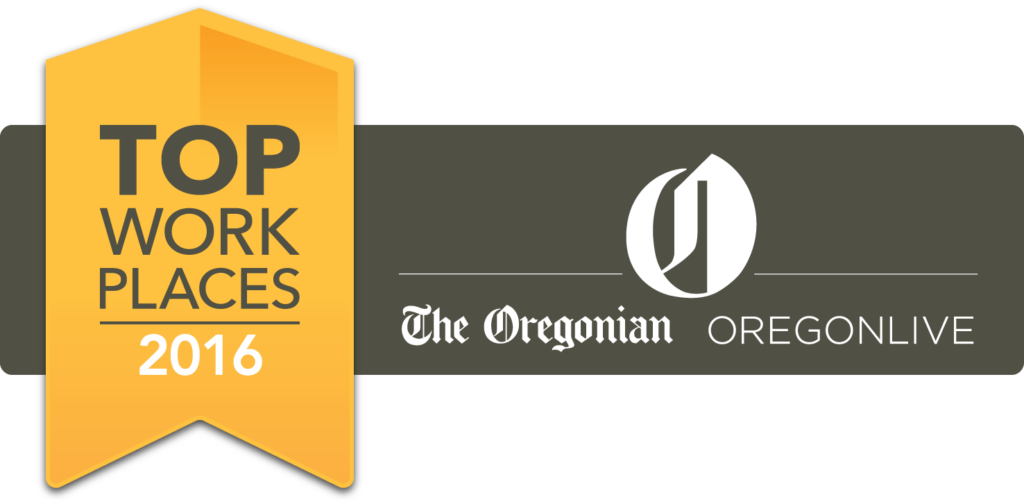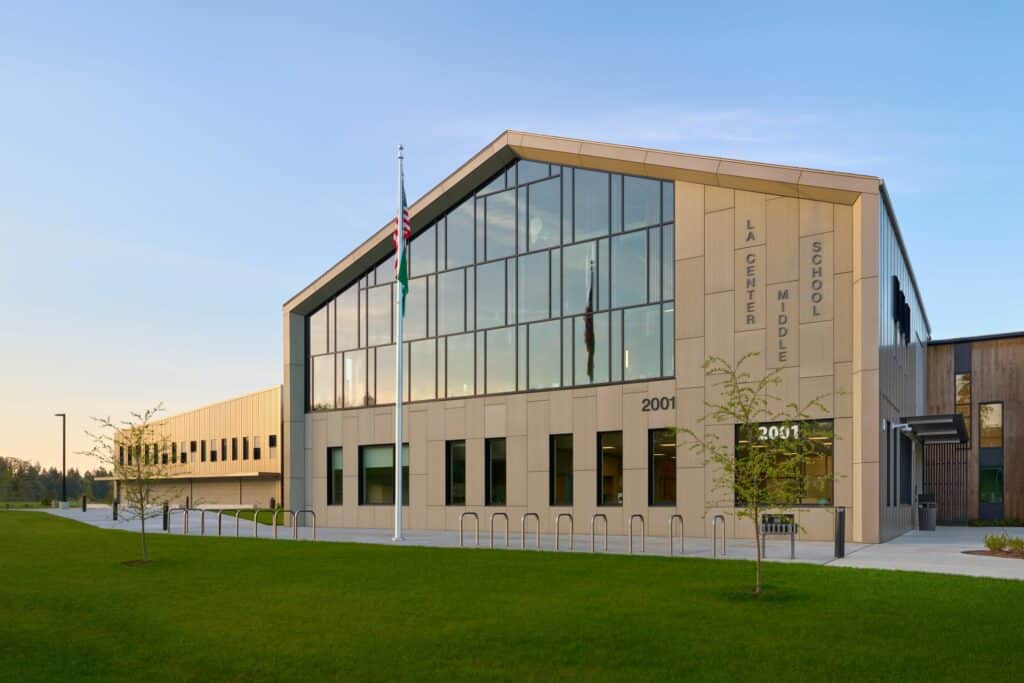The construction industry is experiencing unprecedented transformation as we navigate through 2025. With construction spending exceeding $2 trillion and strong growth projected through the coming year, the sector is poised for significant evolution driven by technological innovation, sustainability demands, and changing market dynamics. For commercial construction professionals and property owners, understanding these construction industry trends is essential for making informed decisions about future projects.
Robinson Construction Company, with over 70 years of experience in commercial construction, understands how these trends to watch are reshaping project delivery, enhancing energy efficiency, and creating better outcomes for clients throughout Oregon and the Pacific Northwest.
2025 Construction Industry Outlook: Economic Recovery and Growth
The construction market is showing strong signs of recovery and optimism for 2025. Industry experts forecast 8.5% growth in total construction starts, with nonresidential construction expected to rise by 6.9% and commercial construction growing by 1.7% to 4.2%. This growth is driven by several key factors:
Market Trends supporting growth include:
- Lower interest rates reducing project financing costs
- Federal infrastructure investments creating sustained demand
- Commercial construction spending increases in healthcare, education, and data center sectors
- Manufacturing construction maintaining strong performance, accounting for over 27% of nonresidential projects
For commercial contractors like Robinson Construction, this construction industry outlook represents significant opportunities across diverse commercial spaces including office buildings, retail centers, healthcare facilities, and industrial developments.
Technology Revolution: AI, BIM, and Digital Transformation
Construction technology trends are fundamentally changing how commercial construction projects are planned, executed, and managed. The integration of artificial intelligence, Building Information Modeling, and advanced digital tools is creating more efficient, accurate, and cost-effective construction processes.
Building Information Modeling and Digital Twins
BIM has evolved beyond 3D modeling to become Digital Information Management (DIM), extending its role to manage the full lifecycle of construction projects while integrating real-time data, IoT connectivity, and cloud-based tools. Digital twin technology is revolutionizing project management by creating intelligent, multidimensional digital models that enable:
- Real-time monitoring of construction site conditions
- Predictive maintenance and operational optimization
- Enhanced collaboration between project management teams
- Improved decision-making through data-driven insights
Leading commercial contractors are leveraging advanced BIM workflows in commercial construction projects, resulting in reduced errors, improved coordination, and faster project delivery times. Digital twin technology is being used to optimize building performance and provide clients with comprehensive facility management tools.
Artificial Intelligence and Machine Learning
AI will redefine construction operations in 2025, offering smarter planning, resource allocation, and on-site execution through AI-powered generative design tools that optimize architectural, structural, and subsystems designs while reducing material waste. Key applications include:
AI-Powered Solutions transforming commercial construction:
- Generative design optimization for improved functionality and sustainability
- Predictive analytics for supply chain management and material costs control
- Automated project management scheduling and resource allocation
- Enhanced safety monitoring through real-time data analysis
Drone Technology and Site Management
Drones equipped with AI and machine learning deliver real-time aerial imagery, 3D LiDAR scans, and thermal imaging, giving construction managers the ability to monitor progress, perform detailed inspections, and spot potential issues with exceptional precision. Drone technology applications include:
- Comprehensive site surveys and progress monitoring
- Safety inspections of hard-to-reach areas
- Real-time data collection for BIM integration
- Cost reduction through automated monitoring processes
Commercial contractors are increasingly utilizing drone technology across commercial construction projects to enhance safety protocols, improve project management efficiency, and provide clients with detailed progress documentation.
Sustainable Construction: Green Building Practices Leading the Way
Sustainability has become a central requirement rather than an option in commercial construction. The construction industry is responsible for almost 40% of energy-related emissions worldwide, driving unprecedented demand for greener construction options and sustainable building practices.
Green Building Materials and Energy Efficiency
Sustainable building materials including recycled steel, reclaimed timber, and bamboo are becoming cornerstone materials, while engineered timber with its impressive strength-to-weight ratio offers environmentally friendly alternatives to traditional construction methods. Key sustainable materials gaining popularity include:
Eco-Friendly Materials transforming commercial construction:
- Low-carbon concrete with recycled content
- Sustainably sourced engineered timber and cross-laminated timber
- Self-healing concrete that extends building lifespan
- Green building components like solar panels and energy-efficient HVAC systems
Modular Construction and Prefabrication
Modular construction and prefabrication solutions enable businesses to minimize waste, slash build times, and lower costs by developing structural components in controlled factory settings before assembling them onsite. Benefits include:
- Reduced construction time and improved quality control
- Minimized waste and enhanced energy efficiency
- Lower construction costs through optimized construction methods
- Improved worker safety through controlled manufacturing environments
Leading construction companies are successfully implementing modular construction techniques in office building renovations and retail space developments, achieving significant reductions in both construction time and environmental impact.
Energy Efficiency and Renewable Integration
Innovations in HVAC systems, smart lighting, and advanced insulation materials are helping buildings achieve unprecedented levels of energy efficiency while integrating renewable energy sources such as solar panels and wind turbines into building designs. Focus areas include:
- Smart building systems for automated environmental control
- Green building certifications like LEED and BREEAM
- Net-zero energy targets through renewable integration
- Advanced construction techniques for enhanced thermal performance
Addressing Labor Shortage and Workforce Challenges
The construction industry continues to face significant workforce challenges, with labor shortage issues affecting project timelines and construction costs. The industry faces a persistent labor shortage driven by an aging workforce and a lack of skilled labor, necessitating increased investment in training and development programs.
Technology Solutions for Labor Challenges
Construction firms are leveraging technology to address workforce limitations:
Innovative Workforce Solutions:
- Robotics and automation for repetitive tasks
- Advanced construction equipment reducing manual labor requirements
- Enhanced training programs utilizing virtual and augmented reality
- Improved project management software streamlining workflows
Construction Companies Adaptation Strategies
Leading commercial contractors are implementing comprehensive strategies to attract and retain skilled construction workers:
- Competitive compensation packages and benefits
- Investment in training programs and career development
- Technology adoption to reduce physical demands
- Partnerships with educational institutions for workforce development
Leading construction companies prioritize workforce development through ongoing training programs, competitive compensation, and investment in construction technology that enhances job safety and satisfaction for team members.
Supply Chain Innovation and Cost Management
Material costs and supply chain disruptions continue to impact commercial construction projects, requiring innovative approaches to cost management and resource procurement.
Supply Chain Resilience Strategies
Companies must develop resilient supply chain strategies to mitigate risks from global disruptions and ensure project continuity while managing material costs effectively. Key approaches include:
Strategic Supply Chain Management:
- Diversified supplier networks reducing dependency risks
- Local sourcing strategies for construction materials
- Advanced inventory management systems
- Predictive analytics for material costs forecasting
Cost Optimization Through Technology
Construction management software and digital tools are enabling more precise cost control:
- Real-time budget tracking and project management
- Enhanced estimation accuracy through BIM integration
- Automated procurement processes reducing administrative costs
- Data-driven decision making for resource allocation
Commercial Construction Sector Opportunities
The commercial constructionmarket presents diverse growth opportunities across multiple sectors in 2025:
Healthcare Facilities and Educational Institutions
Healthcare construction benefits from an aging population, while education facilities see growth in modernization projects, with institutional spending projected to grow 6.0% in 2025. Growth drivers include:
- Healthcare facilities expansion for aging demographics
- Educational institutions modernization and technology integration
- Specialized construction requirements for medical and educational spaces
- Enhanced safety and accessibility standards
Data Centers and Technology Infrastructure
Data centers, warehouses, and manufacturing collectively dominate the nonresidential sector, with data center projects remaining a pivotal driver of commercial construction growth. Key opportunities include:
- Rapid expansion of data center construction
- Cloud computing infrastructure development
- Specialized construction for technology requirements
- Energy-efficient design for operational cost reduction
Commercial contractors with experience in healthcare and technology sectors are well-positioned to capitalize on these growth opportunities, having completed numerous commercial construction projects including medical office buildings, educational facility renovations, and technology infrastructure developments.
The Future of Commercial Construction: Trends Impacting Industry Success
Construction Business Transformation
The construction business is evolving beyond traditional approaches toward integrated solutions that combine:
Next-Generation Construction Approaches:
- Sustainable construction practices as standard operating procedure
- Digital transformation across all project phases
- Enhanced collaboration through cloud-based platforms
- Predictive maintenance and lifecycle management
Commercial Contractors Competitive Advantages
Successful contractors in 2025 and beyond will differentiate themselves through:
- Advanced construction technology adoption
- Comprehensive sustainability expertise
- Skilled workforce development and retention
- Client-focused project delivery approaches
Robinson Construction: Your Partner in Commercial Construction Excellence
As these construction industry trends continue to reshape the commercial construction landscape, Robinson Construction Company remains committed to delivering practical solutions that match client needs. With over 70 years of experience as a family-owned construction company, we understand the importance of staying current with industry developments while maintaining our core values of integrity, quality, and excellence.
Our Commitment to Excellence:
- Over 70 years of commercial construction experience
- Family-owned construction company serving Oregon and the Pacific Northwest
- Comprehensive general contracting and construction management services
- Diverse portfolio spanning retail, educational, healthcare, and industrial projects
Whether you’re planning a new office building, healthcare facility, retail center, or industrial development, Robinson Construction Company brings decades of experience and commitment to quality in every project. We understand the evolving market demands and regulatory requirements that shape commercial construction decisions.
Ready to Start Your Next Commercial Construction Project?
The construction industry trends of 2025 present both challenges and unprecedented opportunities for commercial property development. With lower interest rates and falling inflation reducing project financing costs, coupled with federal infrastructure investments, the timing is favorable for commercial construction investments.
Contact Robinson Construction Company today to discuss your next commercial construction project. Our experienced team is ready to help you navigate the changing construction landscape and deliver exceptional results that meet both current needs and future requirements.
From initial project planning through final completion, we’re committed to providing practical solutions and delivering superior value for our clients. Let’s discuss how we can bring your vision to life with confidence in 2025 and beyond.




